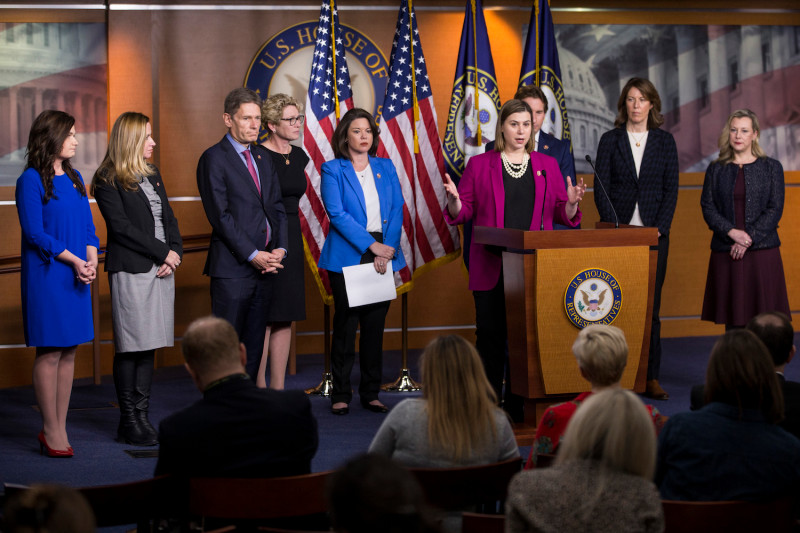House Democrats Are Bracing For A Showdown Over The Foundation Procedure.
Written byTimes Magazine

Key Sentence:
- Divisions among House Democrats over sanctioning President Joe Biden's general framework plan.
- The plan is ready to reach a crucial stage when officials return to Washington this week, starting with a critical spending vote.
The House is relied upon to cast a ballot on Tuesday on a careful spending plan goal for the President's spending bundle after the Senate recently supported a $3.5 trillion measure. Yet, Democratic divisions are endangering its entry into the House.
The objective is for Democrats to have the option to make a general administrative bundle to grow the social wellbeing net under a spending interaction known as a compromise, which would not be dependent upon the Senate delay's 60-vote edge.
In any case, the two chambers ultimately need to take on the spending goal. And a gathering of nine moderate House Democrats is holding that up, pushing to initially pass a different $1 trillion bipartisan framework bargain - which the Senate has effectively passed - before deciding on the spending goal.
On Friday, the gathering of conservatives again required a quick decision on the bipartisan bill first.
Speaker Nancy Pelosi has demonstrated for quite a long time that the House will not take up the bipartisan bill until the Senate passes a more extensive and clearing bundle through spending compromise. She's inclination pressure from her left flank, as well: House reformists say they will not help the bipartisan arrangement all alone without the compromise measure.
The conflict presents an early trial of whether Democrats will want to beat their inward divisions with a tight, more significant part in the two offices of Congress and effectively push Biden's plan ahead.
The vote-based authority has asked solidarity and focused on the high stakes existing apart from everything else as they attempt to bring along both philosophical wings of the party without losing essential votes from one or the flip side of the range.

The party's groups will currently be on the spot over how far they will go to fulfill their needs.
House Majority Leader Steny Hoyer told individuals during a Democratic assembly to consider the principles for spending goal last week. The bipartisan Senate foundation arrangement, and H.R. 4, the John Lewis Voting Rights Advancement Act, will be decided on Monday night when the House returns, as per a source on the call. Hoyer then, at that point, said that the last entry of the spending goal and H.R. 4 would probably be on Tuesday.
In the wake of the interest from moderates, Pelosi has asked for a quick decision on the spending goal. "The House should pass the spending goal promptly," Pelosi wrote in a letter to House Democrats last week.
Before that, the nine conservatives said in their very own letter that they "won't think about deciding in favor of a spending goal" until the bipartisan bill has passed the House and been endorsed into law.
Reps endorsed the letter. Josh Gottheimer of New Jersey, Vicente Gonzalez, Filemon Vela and Henry Cuellar of Texas, Jared Golden of Maine, Ed Case of Hawaii, Kurt Schrader of Oregon, Jim Costa of California, and Carolyn Bourdeaux of Georgia.
Following that letter, Pelosi declared that she had requested that the Rules Committee "investigate the chance" of a standard that would propel the spending goal and the bipartisan framework bundle.
The formal vote is procedural and checks only one obstacle to be cleared preceding the last entry of one or the other measure.
The gathering of conservatives reacted to the news by repeating that they need to initially decide on the bipartisan bill before continuing to the spending goal.
On Friday, as the officials again emphasized their push for a quick decision on the arrangement, Gottheimer, the gathering's chief and co-seat of the Problem Solvers Caucus, shown he intends to help the spending goal.
"I accept we should initially cast a ballot promptly on the bipartisan foundation bundle, send it to the President's work area, and afterward rapidly think about the spending goal, which I intend to help," the New Jersey Democrat said in a proclamation.
Yet, the gathering's dangers to a cycle that has been honored by the White House and Democratic legislative pioneers has irritated reformists, who have sworn to help the bipartisan bill, regardless of survey it as excessively lean, as an ally to the more powerful compromise bundle.
Trending News

